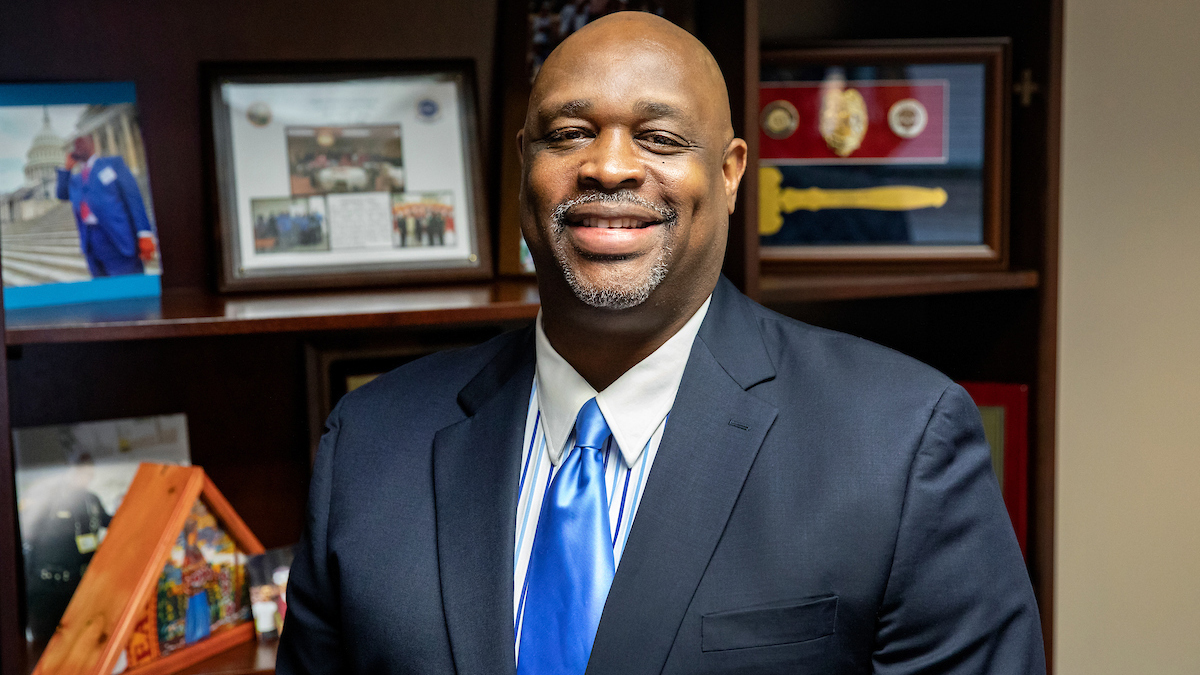Short time, long list of priorities for new police chief
New UNC Police Chief David Perry talks about his approach, and he unveils how he will literally roll through campus.

David Perry has led Carolina’s police force just a short time, but he has a long list of positive things he wants to do.
A 25-year law enforcement veteran, the new assistant vice chancellor and chief of UNC Police began work Sept. 3.
“The first 15 days have been fantastic and I’m looking forward to the next 15 years after the reception that I’ve received,” Perry said.
Perry talks about his approach, and he unveils how he will literally roll through campus.
How do you define community policing, and how does it work at a university?
Community policing is (the guiding principle behind) a highly engaged and motivated police department that monitors the pulse of the campus community. It includes things not only related to law enforcement but also the rhythm of campus and understanding how it works and its needs.
It’s not complicated and starts with officers being visible and participating not just in police activities, but also community activities. Doing things like stopping for a cup of coffee with faculty, staff or students. Traditional activities are great, but I believe in building on those with programs or services that truly benefit a specific community.
At other universities, how did you build trust and communicate?
By figuring out the rhythm of campus. Connecting with campus partners and leaders, both formally and informally, is also extremely important. I believe in management by walking around. You cannot learn in any environment by maintaining a schedule; walking into an office every day and sitting at a computer answering emails. That’s not how I think. To make true connections, you have to go where people are, in Facilities Services, in Rams Head, in South Building and campus-wide.
I’ll have a new gadget to help me cover more territory quicker. Students are going to see me on a Segway between class changes, interacting with them. I’ll be able to move quickly and be close to the people who matter. It’s an outstanding community interaction tool that’s worked marvelously for me at all types of events.
Do you have a timeline for your work here?
Absolutely, but it’s not set in stone. I know within a certain time period I will have met with all my staff and will have hopefully connected with many of the campus leaders and community partners. I’ll start to get a feel of the important community events, meetings and things that are happening within our Chapel Hill community.
What are your priorities coming into the job?
I’m focusing on a long list of high priorities, practices, policies and general orders, using my experiences in campus public safety and higher education. A great deal centers on activities that police departments might undertake that could create concern, like vehicle chases, high-profile investigations, the use of weapons and training for those things that, through my experience, you want to make sure are in line with accreditation standards and with best practices around the country.
You said that you want to focus on student wellness; what does student wellness mean to you?
For our part, student wellness means the police department doing their part to facilitate student success. Resiliency is a big piece of today’s student experience. We want to make sure that they receive the attention, care and resources they need to deal with the high stress of being a student and navigating university life.
I’ve met students like Student Body President Ashton Martin. It was an important meeting to set the course, based on her expectations during her administration. I’ve interacted with students as I’ve been around campus and, for the most part, they express feeling a sense of safety. But, they’re not familiar with many UNC Police officers. I want to work on that. I want students to be able to walk up to a police officer, have a conversation and know their name.
How is policing a university campus different from or the same as policing a town or city?
Compared to a traditional municipal or city law enforcement agency, there are many similarities in what we do, but a campus police officer is better equipped to deal with people because of the emphasis on customer service and the expectations that parents and students have.
We are not only law enforcement officers trained to serve and protect and save lives, but we’re also there to be counselors, in a way, who interact with students to advise them and spend time with them, to be a part of community activities and be ingrained in the University culture. We take it a step further. We’re traditional police officers responding to calls for service, but we also can stop and invest time with faculty, staff and students we’re here to serve.




